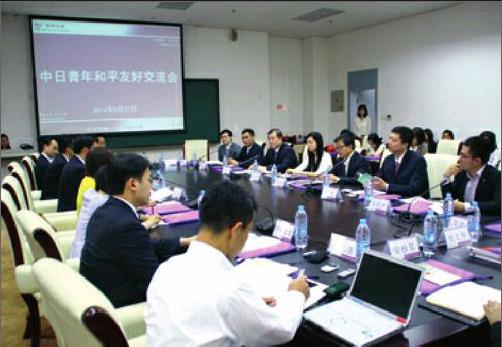Breaking Barricades
2014-07-28

As the worlds second and third largest economies, we cannot help but wonder why historical disagreements and territorial disputes are still the major barricades to the relations between China and Japan after their bilateral ties and mutual interdependence have experienced leapfrog development since the normalization of their diplomatic relationship more than 40 years ago.
Although there are numerous urgent issues for the two governments to tackle together in trade, people-to-people exchange, mutual trust as well as environmental management, Japanese leaders have deliberately rubbed salt in the wounds of Chinese people and even Japanese people who have suffered from the painful experience of Japanese aggression against China during World War II. They re-open these wounds wantonly and repeatedly. At the same time, the Japanese Government also chose to play with fire over the Diaoyu Islands issue, which can easily incite nationalism in people and cannot be fundamentally resolved in a short time.
Probing the causes
Since the normalization of Sino-Japanese diplomatic relations in 1972, experience shows that if the two countries can handle the historical issue and territorial disputes properly, it is not impossible that the two can narrow differences and prevent conflicts. But why has the Japanese side chosen to use these two most sensitive and complicated issues to irritate bilateral ties and disturb the normal development of Sino-Japanese relations? The following two points may identify the main reason.
First, some people in Japan have not fully understood and gotten used to the great changes of China over the past three decades. Some doubt Chinas rapid growth and even remain immersed in a cold-war mentality. They do not acknowledge or accept Chinas development, trying instead to demonize it. Especially when China replaced Japan as the worlds second largest economy, some extremist forces in Japan became even more irrational and out of control. They began to provoke China constantly on multiple issues, smearing Chinas image and defaming Chinas rapid progress as well as its growing global influence.
Second, the purpose of Japans instigating the territorial disputes and historical revisionism is not to resolve the problems but to facilitate constitutional rewriting and military expansion by shaping China as its rival domestically and internationally. In the past year, the top Japanese leader has visited more than 40 countries in a rare feat. Each time, he would discuss SinoJapanese relations, giving the global community an impression that Japan is facing a strong enemy and justifying his arguments for constitutional amendment and military expansion. He has posed to the world the idea that Japan would readily join hands with other countries to contain China.endprint
